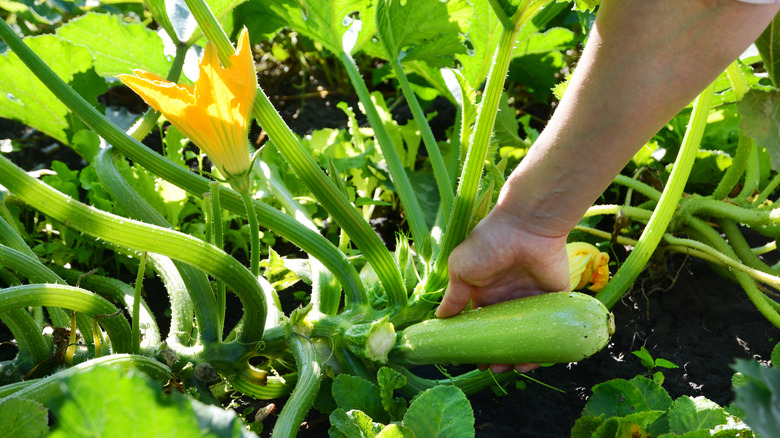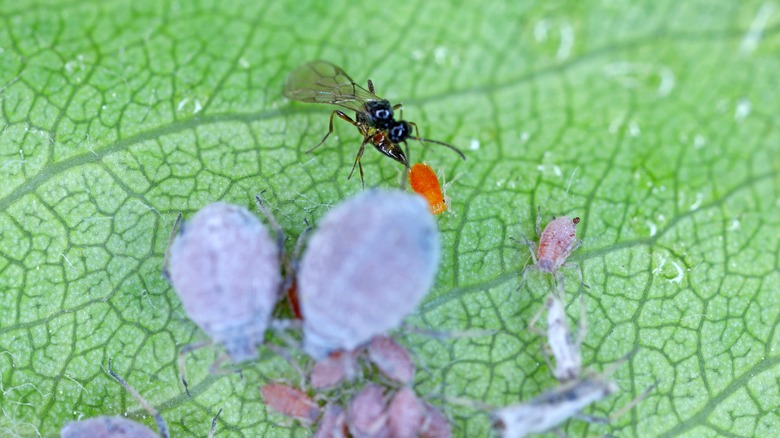Zucchini Plants Overrun With Ants? Here's What To Do
If you see ants foraging on your zucchini plants, you have a couple of options: you can spray them down or use non-chemical solutions like parasitic wasps or ant-deterring plants. Ants, although beneficial to some garden functions, are not doing you any favors by hanging out on your zucchini plants since they're not pollinators. To make matters worse, their presence discourages bees, the actual heroes of pollination, from doing their job.
Furthermore, ants are often the harbingers of a more significant problem: an aphid infestation. Aphids are small insects that are not just a nuisance; they actively damage your plants by withdrawing essential nutrients, curtailing your plant's growth. Some ants farm aphids for their honeydew, a sugary substance that can lead to mold growth. This extra layer of complications can impact not just your zucchini but other plants as well. That being said, the presence of ants doesn't always spell doom since they can be beneficial for certain garden tasks. It's, therefore, important to be strategic in your pest control methods.
Water blast for mild infestations
If ants are on your zucchini plants, a quick and effective solution is to blast them off with water. Don't just spray randomly; target the stems and the undersides of leaves where ants and potential aphids like to congregate. Use a hose with a spray nozzle with a "jet" setting for more forceful water expulsion. While this water blasting method is chemical-free and straightforward, avoid doing it late in the evening or at night. Doing so can leave your plants damp overnight, creating ideal conditions for fungal growth. Aim to do this in the morning or early afternoon to give your plants enough time to dry out before the sun sets.
If you also observe ants on your porch, resist the urge to water blast them immediately. They could very well contribute positively to other areas of your garden, and blasting them away indiscriminately could do more harm than good. For example, ants play a vital role as beneficial insects — they help aerate the soil as they build their nests, which improves soil quality. This aeration allows for better water penetration and root expansion. So essentially, if the ants aren't directly affecting your zucchini, consider holding off on the water blast and monitoring their movements.
Choose non-chemical solutions for heavy infestations
If the issue is serious, you might be tempted to apply a broad-spectrum chemical insecticide. However, these products often do more harm than good, killing beneficial insects along with the ants and negatively impacting your garden's overall ecosystem. Instead, opt for targeted, non-chemical solutions by repelling the bugs naturally. One such strategy involves using nature's very own pest control mechanisms by introducing beneficial insects like parasitic wasps into your garden. These wasps lay their eggs in aphids, which naturally curtails both the aphid and ant populations.
Another underused but effective non-chemical strategy is setting up ant barriers around your zucchini plants. You can choose to plant basil, marigolds, or lavender, all of which are known to deter ants. Planting mint is an option as well since ants are put off by the smell. Because mint can easily overtake your garden, however, you may want to place some potted mint around your zucchini plants.


